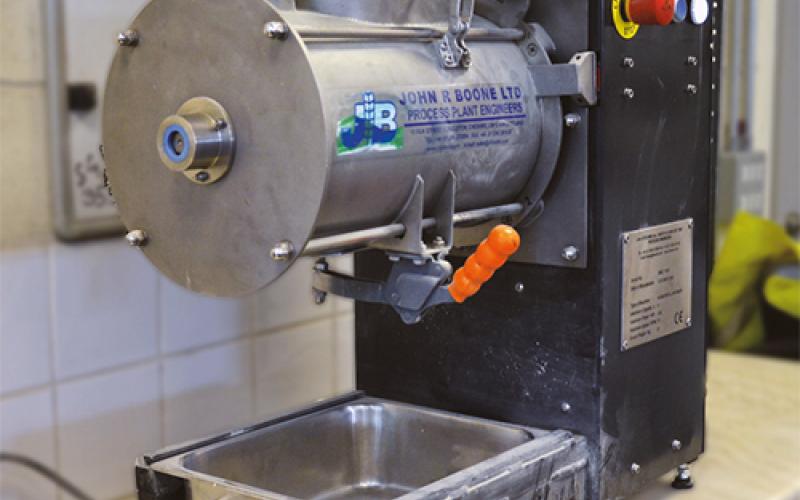Boone Mixers have supplied Nicholls and Clarke (N&C) with a versatile and accurate Universal Lab Mixer at their factory in Burslem, Staffordshire, along with interchangeable mixing blades to test the full range of products produced by N&C.
The Boone lab mixer provides N&C with the invaluable ability to guarantee an accurate scale up from an 8kg test mix directly to a full 2.7 tonne production batch.
N&C produce tile grouts and adhesives in both powdered and ready-made forms, using ingredients including Portland and high alumina cements and graded sand, together with additives, polymers and pigments. One of the biggest challenges when manufacturing a wide range of coloured tile grouts is to get the correct ‘dosage’ of pigment when moving from lab tests through to full-scale production, and the Boone Universal Lab Mixer allows N&C Technical Manager Peter Till to be confident that he can guarantee an accurate scale up, achieving the same colour in production as was approved in the lab. It also enables N&C to maximise the effectiveness of the pigment dispersion which will lead to colour repeatability batch to batch. Key to that is the variable speed drive of the lab mixer that allows the speed to be calibrated to match the performance of the production mixer, which is another Boone mixer installed several years ago.
The Boone Universal Lab Mixer is a compact but robust, bench-mounted device with a variable speed drive and short length to diameter ratio for fast, efficient mixing. To accurately model the range of powders and pastes that N&C produce, Boone supplied both a high-shear delta blade and a horizontal helical blade mixer (HHBM) centre, either of which can be easily mounted in the easy clean stainless-steel mixer shell. The Universal Lab Mixer can be configured to match almost the full range of Boone production
mixers, meaning that trace and micro-ingredients can also be incorporated into the mix with as much consistency and accuracy as they would be at production scale.
As Peter Till put it, ‘There are two ways in which the lab mixer saves us time – firstly, I don’t have to develop a separate mix method for the production mixer, I know that the 8kg lab mixer method will translate accurately to the full 2.70 tonne batch. The main thing, though, is that we now have a “pilot” batch piece of plant giving us the opportunity to hone product requirements instead of progressing directly to producing 2.7 tonnes of product from making 600g in the laboratory, thus saving us time, materials and money.’

